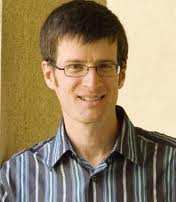Presenting Decisively
 The other day, Suellen and I saw Chip Heath give a presentation on the key messages of his new book, Decisive. Heath is on tour to promote the book and Denver was a well-promoted stop along the way.
The other day, Suellen and I saw Chip Heath give a presentation on the key messages of his new book, Decisive. Heath is on tour to promote the book and Denver was a well-promoted stop along the way.
I’ve written about the book in recent weeks and plan to write more in the near future. It’s a simple, clear synopsis of recent research on decision-making.
Today, however, I want to focus on Heath’s presentation style – he reminded me of many lessons I’ve learned in public speaking. Here’s a summary.
Establish rapport and credibility – a large audience turned up in Denver and Heath commented on it immediately, saying, “It’s clear that the people of Denver are intellectually curious. In fact, I’d say that they’re four times more curious than people in Austin and eight times more than people in Los Angeles.” It was funny but it was also a nice compliment. We loved him right away. Best of all, it wasn’t canned.
Slides as hooks not as script – Heath used a lot of slides. He advanced to new slides regularly; no slide stayed up for more than a minute or two. Each time he advanced, the audience “refreshed”. Most of his slides had fewer than ten words on them. Many had only an image. Heath told the story; the slides illustrated it. The text on the slides helped you remember the key points; they didn’t steal Heath’s thunder.
Tell a story, not an abstraction – Heath told a lot of good stories about decisions gone right and gone wrong. They were stories about flesh-and-blood people whose experiences illustrated key ideas about decision making. Every now and then, he would state an abstraction to summarize a point. He never said, “the moral of the story is…” but he could have.
Humor — he wasn’t rolling-in-the-aisle funny, but he had a dry, wry sense of humor that helped hold our attention. We paid attention partially because we didn’t want to miss a laugh line.
Parallel construction – Heath’s book has four major messages – the WRAP process. Heath covered all four and each section was structured in exactly the same way. We always knew exactly where we were in the narrative. We never got lost.
Finish early – Heath finished about ten minutes ahead of schedule (at least, ahead of the schedule that I had in mind). Giving 500 busy people ten minutes of their life back is a nice contribution to our mental welfare. We appreciated it.
Practice, practice, practice – it was clear that Heath was a polished presenter and that he had given this presentation before. That didn’t make it boring. Rather, we concluded that he respected us enough to make good use of our time. If he respects us, we can respect him.
One Response to Presenting Decisively
-
Pingback: Deciding Decisively | Travis White Communications